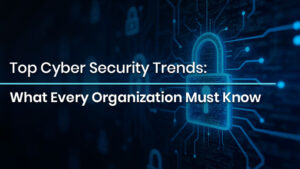
Top Cyber Security Trends: What Every Organization Must Know
Top Cyber Security Trends: What Every Organization Must Know Introduction In an era marked by digital transformation, remote workforces, and rapidly evolving threat landscapes,
Limited-Time Offer! Get an exclusive 40% OFF on IPSpecialist Premium Monthly & Annual Plans. Use Promo Code: UPSKILLNOW at checkout.

Top Cyber Security Trends: What Every Organization Must Know Introduction In an era marked by digital transformation, remote workforces, and rapidly evolving threat landscapes,

Zero Trust vs. SASE: Everything You Need to Know Introduction As the cyber world continues to change, companies need to look beyond conventional security

Cloud Security Posture Management (CSPM) Introduction In the era of digital transformation, organizations are moving to the cloud at an unprecedented pace. While the
Ethical hacking refers to the act of locating weaknesses and vulnerabilities of computer and information systems by duplicating the intent and actions of malicious hackers. It is also known as penetration testing, intrusion testing, or red teaming.
The advantage of ethical hacking is that it supports business efforts to gain more comprehensive knowledge about the organization’s IT security. Through ethical hacking, the organization identifies security vulnerabilities and risks. This knowledge helps improve organizational efforts to strengthen security measures.

However, the main disadvantage of ethical hacking is that it presents risks of information disclosure. As an outsider, the ethical hacker could intentionally or unintentionally disclose the company’s confidential information to other parties.
The legal risks of ethical hacking include lawsuits due to disclosure of personal or confidential information. Such disclosure can lead to a legal battle involving the organization and the ethical hacker. It is very easy for ethical hacking to result in a legal battle if it is not performed properly. It is also possible for the ethical hacker to commit errors to the point that the organization’s profitability is negatively affected.
In such a case, the organization could sue the ethical hacker for failing to perform properly. The ethical hacker could be at legal risk if proper care and precaution are not seriously taken. To address these legal issues, it is imperative for the ethical hacker to always perform his job defensively to minimize compromising the client’s system or network. Defensive performance emphasizes prevention and extra caution in ethical hacking.
The main rules to follow while being engaged in ethical hacking are;
© 2025 All rights reserved | Privacy Policy | Terms and Conditions | Sitemap | Cookie Policy




